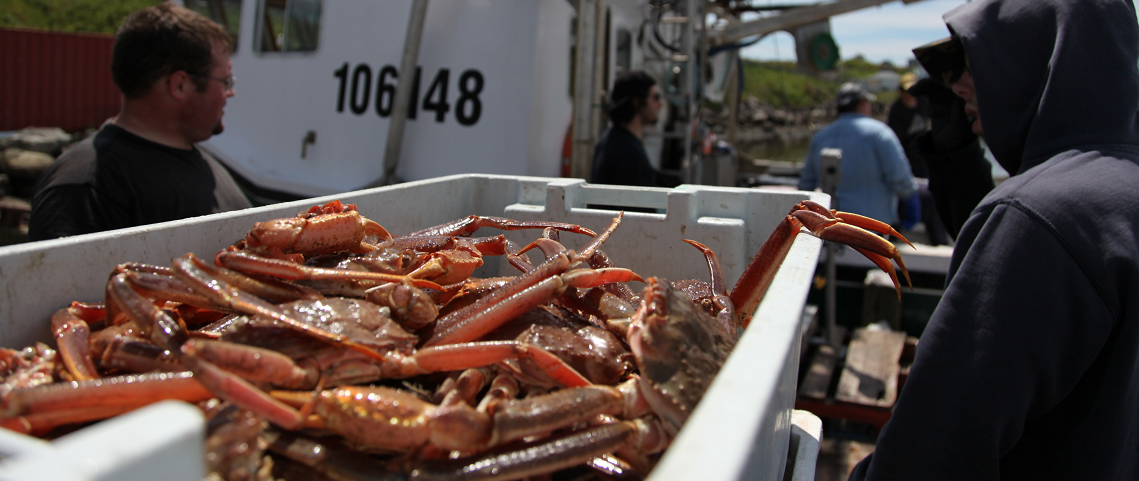Frequently Asked Questions

What is the role of the Province of Nova Scotia in Commercial Fisheries?
The responsibility for the management of wild marine resources is held by the Federal Department of Fisheries and Oceans (DFO) whom, with input from stakeholders and scientists, establishes sustainable harvest levels.
The Province regulates the buying, selling and processing of sea products and helps to increase the revenue derived from marine resources. We support safety, marketing, innovation and the development of new fisheries and products.

What is fished commercially by Nova Scotia?
Nova Scotian commercially fish a wide variety of species and stocks ranging from intertidal clams weighing less than an ounce to giant Bluefin tuna that top the scales well over 1200 lbs. Marine plants such as rockweed are also harvested and leases are issued by the province for this activity.
Over the last several decades, the fishery has shifted from its historic focus on groundfish to shellfish, including lobster, scallop, shrimp and snow crab.
Commercial fisheries has historically been, and continues to be a key component supporting the fabric of rural Nova Scotia.

Where can I buy Nova Scotian seafood?
Premium seafood harvested from the cold Atlantic waters surrounding Nova Scotia can be found in a variety of locations, ranging from small shops at the end of the local wharf to the larger grocery chains throughout the Province. Feeling more adventurous? Head down to your local wharf where you can legally purchase fresh fish directly from a harvester if the weight does not exceed 25 kg and it is used for personal consumption.
Give seafood harvested sustainably in our coastal waters a try and learn why the world considers Nova Scotian seafood to be among that of the highest quality.

What is considered to be ‘seafood processing’?
The processing of seafood in Nova Scotia is legislated by the Fisheries and Coastal Resources Act and supported by the Fish Inspection Regulations. Under these laws, processing is considered to be filleting, icing, packing, canning, freezing, smoking, salting, cooking, pickling, drying or preparing fish or seafood for market in any other manner.
To process fish for sale, in Nova Scotia requires a Fish Processing licence issued by the Province for a licensed and inspected facility. This ensures that any seafood produced in Nova Scotia is of the highest quality and safe for consumption.
